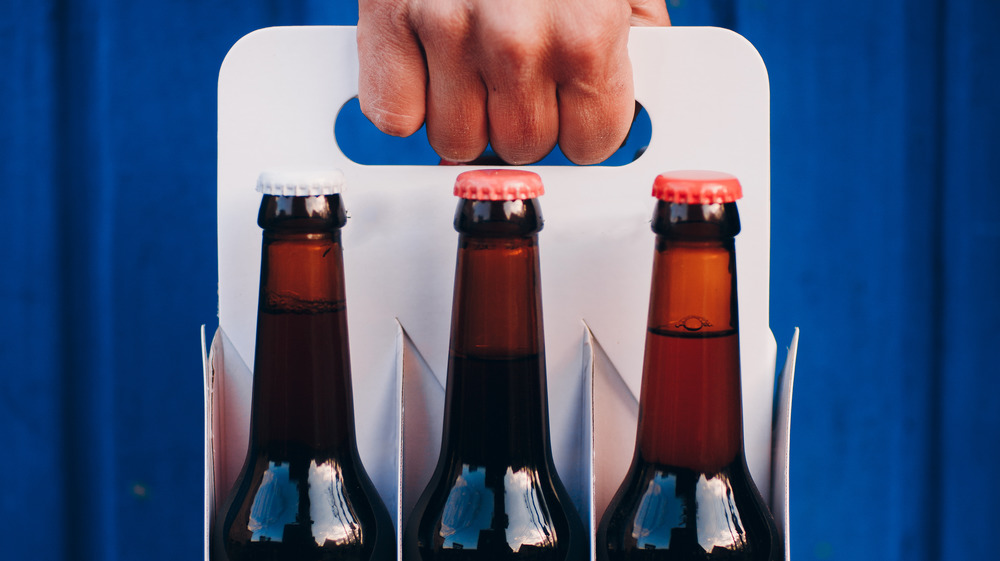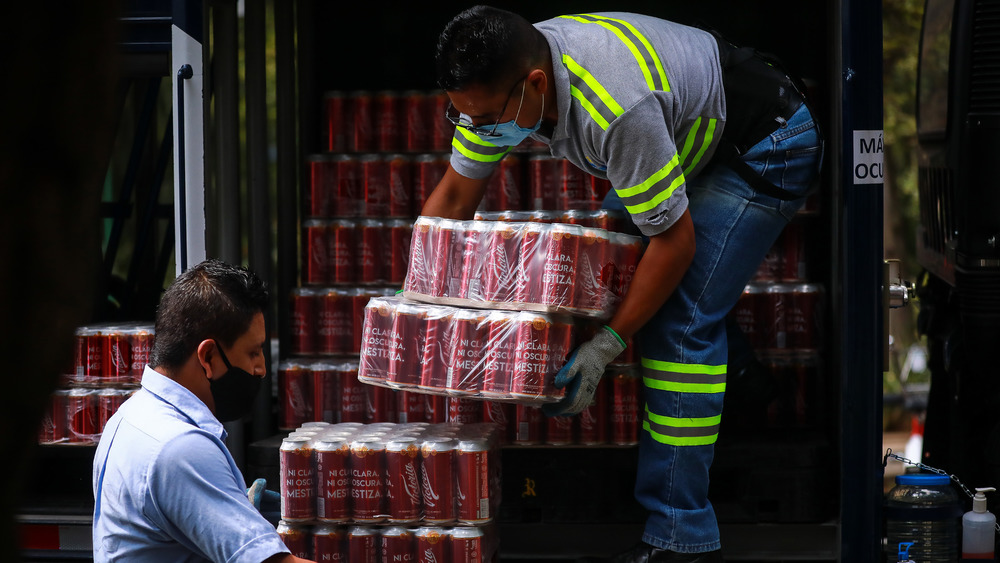How Delivery Drivers Are Being Used To Help Stop Human Trafficking
On January 5, the National Beer Wholesalers Association, the trade association for American beer distributors, announced via a press release that it was over halfway to its 2021 goal of training 10,000 employees to notice the signs of human trafficking. The statement said that 6,000 beer delivery employees now understand the signals, with the organization hoping to have all 140,000 employees on board eventually.
"Beer distributors play an important role in communities across the country and in this critical fight," Sean Reyes, Utah Attorney General, stated in the press release. "They step up when we need them and now they have joined us as extra eyes and ears on the ground to help identify signs of human trafficking."
The important role is that the people who deliver beer visit bars, restaurants, convenience stores, and gas stations all across the country during their rounds. These locations are also rife with human trafficking victims. The most common strategy, according to the anti-trafficking Polaris Project, is to abuse the need of workers on H-2B visas to keep their job, thereby keeping them in the back of the house with no pay.
The Polaris Project also notes that these roles are typically located in the back of the house where "restaurant patrons are unlikely to see people in trafficking situations," and beer delivery people who interact mostly with this side of the business may be more likely to see such people. "We don't need a subpoena to walk into a permitted location, ask to see the books, and inspect the facility," Bentley Nettles, executive director of the Texas Alcoholic Beverage Commission, succinctly explained to The Dallas Morning News.
How Distributors Against Human Trafficking is stepping up to help stop these crimes
Distributors Against Human Trafficking launched in July of 2020, a couple years after the Texas Alcoholic Beverage Commission began to coordinate anti-trafficking strategies with beer wholesalers, according to Forbes. Then, after South Carolina picked up the cause, the national organization saw room to act. "Distributors were eager to get involved," Craig Purser, President and CEO of the National Beer Wholesalers Association, said, "These local business leaders instantly recognized the fight against human trafficking as one where they could play a valuable role."
So, they set up the Human Trafficking Awareness Resource Center on their website. Included are a training checklist and other documents to help raise awareness in the industry. It should be noted that the information given in such preparation is not in-depth, mostly consisting of suspicious things to keep your eyes out for, such as showing signs of physical abuse, displays of fearful or anxious behavior, or is heavily monitored. Another important thing to understand is that any witnesses to human trafficking should leave and inform the authorities, not break it up themselves.
The national trafficking hotline number is 1-888-373-7888. Or, text "BEFREE" 233733. If the situation needs an immediate response, witnesses are asked to call the police.

